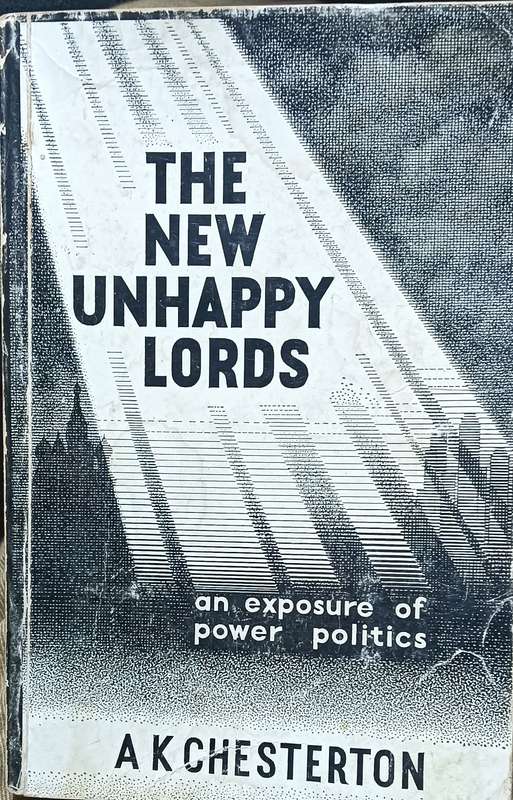
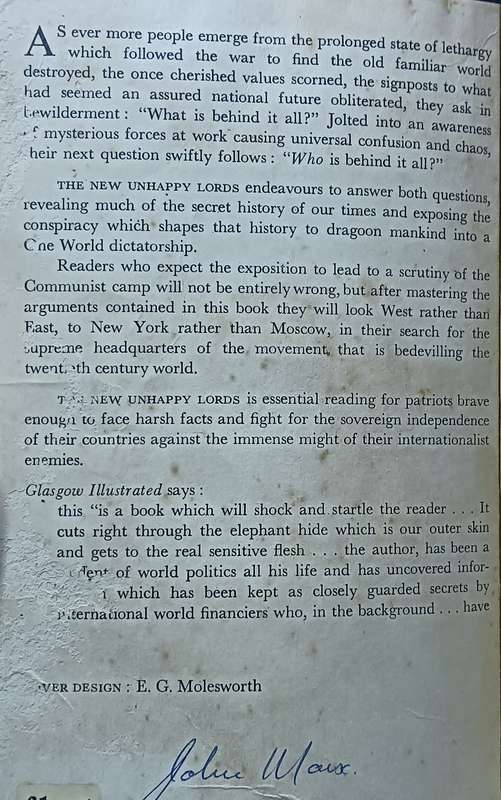
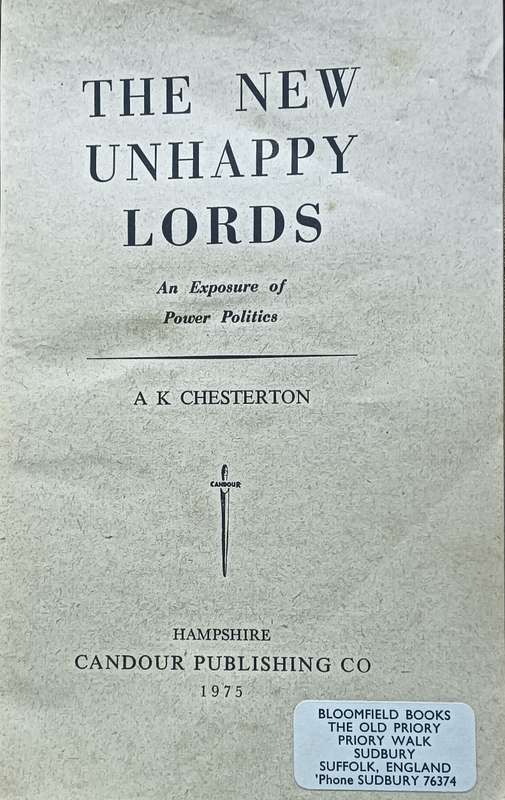
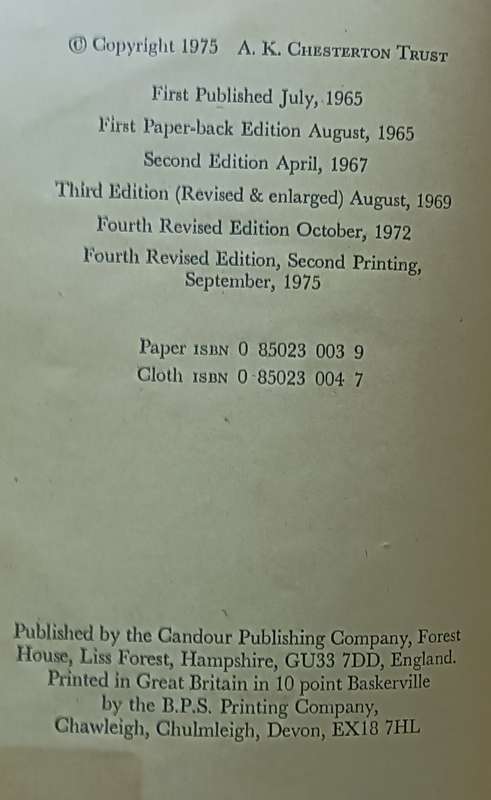
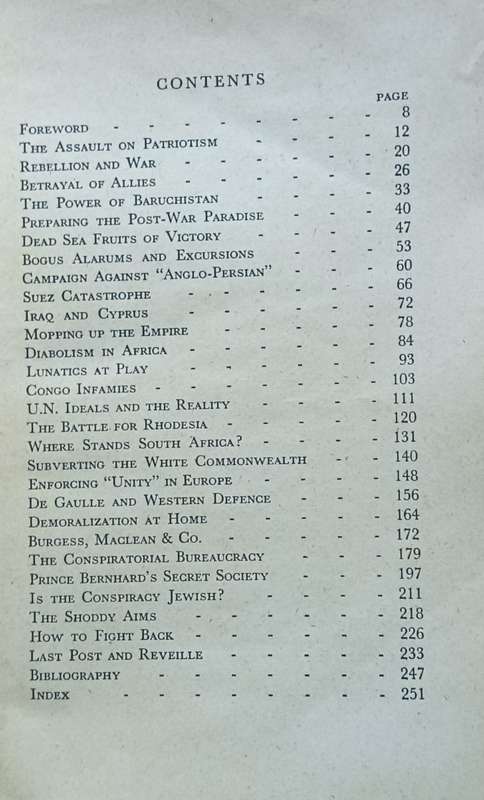






The New Unhappy Lords - AK Chesterton - Softcover - 255 pages
Check my rate
| Main centres: | 1-3 business days |
| Regional areas: | 3-4 business days |
| Remote areas: | 3-5 business days |











| Main centres: | 1-3 business days |
| Regional areas: | 3-4 business days |
| Remote areas: | 3-5 business days |
The New Unhappy Lords - AK Chesterton - Softcover - 255 pages
I supply a tracking number. Normally Ram or the Courier Guy.
I combine postage. I also combine postage with Jessies.
I do not use the post office. No overseas delivery
In A.K. Chesterton's "The New Unhappy Lords," published in 1965, the author launches a scathing critique of the modern power elite, arguing they represent a new form of totalitarianism disguised as benevolent progress. He contends that this "aristocracy of internationalists" is steadily eroding national sovereignty and individual liberty through a network of interconnected institutions and ideologies.
Chesterton identifies various components of this elite, including influential bankers, media magnates, and academics, all driven by a desire for global governance and a utopian vision of a homogenous, centrally-controlled society. He argues that these individuals, often motivated by a disdain for tradition and national identities, promote policies that benefit their own interests while undermining the foundations of Western civilization.
He is particularly critical of international organizations, like the United Nations, seeing them as instruments for dismantling national power and imposing a universalist agenda. He accuses these bodies of promoting policies that undermine traditional family structures, encourage mass immigration, and suppress dissenting voices.
Chesterton believes that this "New Unhappy Lords" maintain their power through manipulating public opinion via controlled media outlets and indoctrinating future generations through biased education systems. He exposes what he sees as a deliberate effort to create a population detached from its roots, susceptible to globalist ideologies, and willing to surrender individual freedoms in exchange for perceived security and prosperity.
Ultimately, Chesterton warns that this insidious form of control poses a significant threat to national identity, individual liberty, and traditional values. He calls for a revival of national pride, a rejection of utopian globalist schemes, and a renewed commitment to defending the principles of individual freedom and limited government. His work is a passionate plea for vigilance against the subtle but pervasive erosion of sovereignty and the creeping rise of a new form of totalitarianism.





